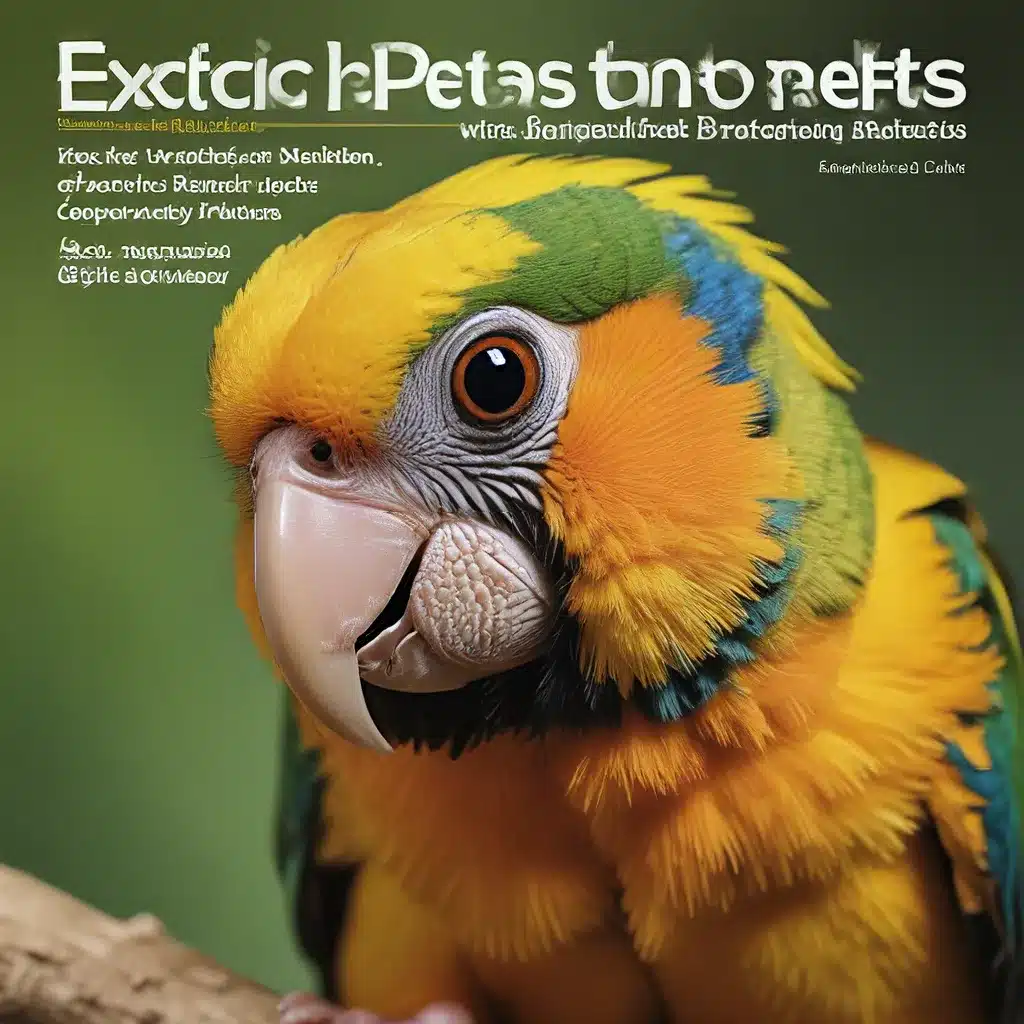
The Allure of Exotic Pets: A Double-Edged Sword
Ah, the enchanting world of exotic pets! These fascinating creatures, from the regal bearded dragon to the captivating sugar glider, have a way of capturing our hearts and sparking our imagination. But as we gaze upon their otherworldly beauty, we must also confront the complex ethical dilemmas that accompany the exotic pet trade. It’s a delicate balance, my friends, where the thrill of owning a unique companion collides with the sobering realities of their well-being and the long-term consequences of breeding.
Let’s dive headfirst into this thorny topic, shall we? Brace yourselves, because we’re about to uncover the intricate web of considerations that come with the exotic pet experience. From the heartbreaking tales of wildlife trafficking to the conundrums of captive breeding, this comprehensive guide will leave you questioning your notions of ownership and challenging the status quo.
The Dark Side of the Exotic Pet Trade
When it comes to exotic pets, the harsh reality is that the industry is rife with unethical practices and dire consequences. The “Guide for the Care and Use of Laboratory Animals” highlights the stark contrast between the allure of these animals and the grim realities they often face. From the cruel conditions of wildlife trafficking to the genetic and behavioral challenges posed by captive breeding, the exotic pet trade is a minefield of ethical dilemmas.
Picture this: a rare, beautiful bird, snatched from its natural habitat, crammed into a cramped, unsanitary cage, and shipped across the globe to satisfy the whims of a deep-pocketed collector. This is the harsh reality for countless exotic creatures, victims of a lucrative black market that cares little for their well-being. And the consequences extend far beyond the individual animals – the disruption of delicate ecosystems and the depletion of vulnerable populations can have devastating ripple effects.
But the troubles don’t end there. Even in the realm of captive breeding, the ethical quagmire deepens. Many local governments in Texas have enacted regulations to address the complex issues surrounding animal shelters and the adoption of stray animals. Yet, when it comes to exotic pets, the landscape is often murkier, with breeders operating in a regulatory gray area.
Navigating the Ethical Minefield of Exotic Pet Breeding
Breeding exotic pets is a delicate dance, one that requires a deep understanding of the animals’ unique needs and an unwavering commitment to their well-being. Unfortunately, not all breeders live up to this lofty standard. The California Hamster Association has long been a champion of ethical breeding, and their insights offer a valuable roadmap for navigating this complex landscape.
One crucial factor to consider is the genetic health of the animals. Irresponsible breeding practices can lead to a host of debilitating conditions, from respiratory issues to devastating cancers. It’s a sobering reality that haunts the exotic pet world, where the pursuit of rare or “designer” traits can come at a steep cost to the animals themselves.
But the ethical considerations go beyond just physical well-being. The behavioral and psychological needs of these captive creatures must also be taken into account. Dwarf hamsters, for instance, are often mistakenly believed to be social creatures, when in reality, their cohabitation can be a recipe for disaster. Separating siblings, providing ample space, and catering to their unique needs are all essential components of ethical breeding.
The Path Forward: Embracing Responsible Ownership
As we grapple with the ethical complexities of the exotic pet trade, it’s easy to feel overwhelmed. But amidst the darkness, there is a glimmer of hope – the power of responsible ownership. By making informed and conscientious choices, we can be part of the solution, rather than contributing to the problem.
For those captivated by the allure of exotic pets, the first step is to resist the temptation of impulse purchases or impulse ownership. Take the time to research the specific species, their care requirements, and the commitment involved. Seek out reputable breeders who prioritize the well-being of their animals over profit margins. And, whenever possible, consider rescuing a pet in need rather than purchasing from a breeder.
But the responsibility doesn’t end there. As proud exotic pet owners, we must be vigilant in providing our companions with the highest standard of care. This means creating comfortable, spacious habitats, adhering to specialized dietary needs, and seeking out qualified veterinary care. It’s a level of commitment that may seem daunting, but the rewards of a healthy, thriving exotic pet are truly priceless.
Conclusion: Embracing the Challenge, Reaping the Rewards
Exotic pets are a fascinating and captivating corner of the animal kingdom, but their ownership is shrouded in a web of ethical complexities. From the heartbreaking realities of wildlife trafficking to the delicate balance of captive breeding, the path forward is far from simple.
Yet, by embracing the challenge and making responsible choices, we can be part of the solution. Golden Exotic Pets is committed to promoting ethical ownership and supporting the efforts of conscientious breeders. Together, we can create a future where the allure of exotic pets is matched by the unwavering commitment to their well-being.
So, let’s raise a metaphorical glass to the enchanting world of exotic companions. But let’s also pledge to be their guardians, their champions, and their voice – ensuring that the thrill of ownership is tempered by the reverence for their well-being. After all, the true beauty of these creatures lies not just in their outward appearance, but in the knowledge that we are their stewards, charged with safeguarding their future.

